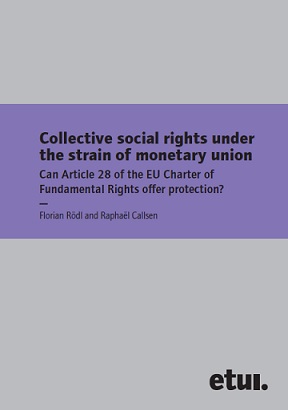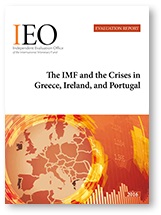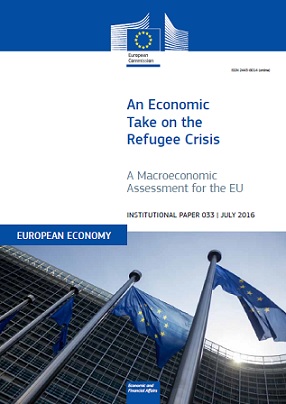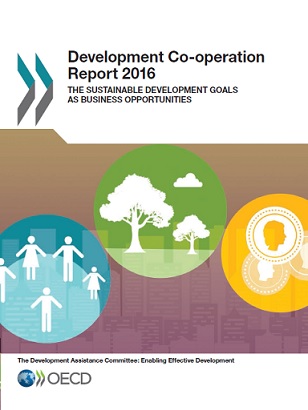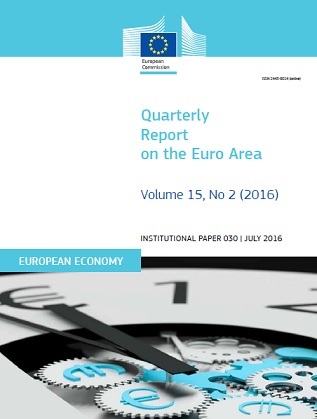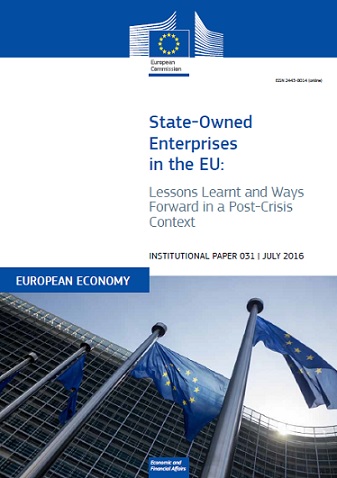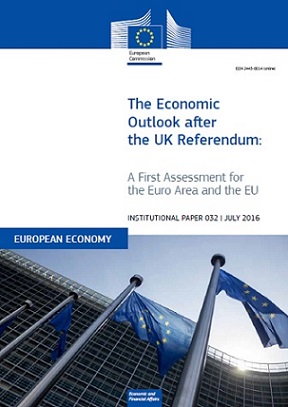Rödl, Florian, Callsen, Raphaël, (2016), “Collective social rights under the strain of monetary union”, ETUI This report examines in depth the legality of the measures taken by the European Union, alongside the European Central Bank (ECB) and the International Monetary Fund (IMF), in the wake of the financial and debt crisis. Beginning with a factual presentation of the European Union’s post-crisis agenda, which has focused on a flexible, productivity-based wage policy, …Read More
The IMF and the Crises in Greece, Ireland, and Portugal
Independent Evaluation Office of the IMF, (2016), “The IMF and the Crises in Greece, Ireland, and Portugal”, IEO-IMF, Ιούλιος A series of crises hit several euro area countries from 2010 to 2013. The crises, coming so soon after the global financial and economic crisis of 2007–08, and occurring in a common currency area comprising advanced and highly integrated economies, posed extraordinary challenges to European and world policymakers. This evaluation assesses …Read More
An Economic Take on the Refugee Crisis
European Commission, (2016), “An Economic Take on the Refugee Crisis”, European Commission, Institutional Paper 033, Ιούλιος Europe is facing an unprecedented surge in the number of asylum seekers and refugees. These flows have put considerable strain on public authorities in several Member States. From a purely macroeconomic point of view, the impact appears moderate, stemming in the short term from increased public spending and, over time, a slight rise in labour …Read More
Development Co‑operation Report 2016: The Sustainable Development Goals as Business Opportunities
OECD, (2016), “Development Co-operation Report 2016: The Sustainable Development Goals as Business Opportunities”, OECD Publishing, Paris, 18 Ιουλίου The face of development has changed, with diverse stakeholders involved – and implicated – in what are more and more seen as global and interlinked concerns. At the same time, there is an urgent need to mobilise unprecedented resources to achieve the ambitious Sustainable Development Goals (SDGs). The private sector can be …Read More
The re-pricing of sovereign risks following the Global Financial Crisis
Malliaropulos, Dimitris, Migiakis, Petros M., (2016), “The re-pricing of sovereign risks following the Global Financial Crisis”, Bank of Greece, Ιούλιος How strong has been the effect of the Global Financial Crisis (GFC) on systemic risk in sovereign bond markets? Was the increase in credit spreads relative to triple-A benchmarks which followed the GFC the result of higher sovereign credit risk or the result of a re-pricing that reflected changes in broader …Read More
Sovereign Debt Restructuring and Growth
Forni, Lorenzo, Palomba, Geremia, Pereira, Joana, Richmond, Christine J., (2016), “Sovereign Debt Restructuring and Growth”, IMF Publications, Working Paper No. 16/147, 22 Ιουλίου This paper studies the effect of sovereign debt restructurings with external private creditors on growth during the period 1970-2010. We find that there are bad and good (or not so bad) debt restructurings for growth. While growth generally declines in the aftermath of a sovereign debt restructuring, agreements that …Read More
Sovereign Risk and Deposit Dynamics : Evidence from Europe
Grigorian, David A., Manole, Vlad, (2016), “Sovereign Risk and Deposit Dynamics : Evidence from Europe”, IMF Publications, Working Paper No. 16/145, 22 Ιουλίου The unprecedented expansion of sovereign balance sheets since the global financial crisis has given a new meaning to the term sovereign risk. Developments in Europe since early 2010 presented new challenges for the functioning of private banks in an environment of heightened sovereign risk. This paper uses an …Read More
Quarterly Report on the Euro Area
European Commission, (2016), “Quarterly Report on the Euro Area”, Vol.15, No.2, Institutional Paper 030, Ιούλιος According to the European Commission’s latest forecast, published in May 2016, the economic recovery in the euro area is expected to continue at a fairly modest pace, especially when compared with precrisis standards. Underwhelming growth is mainly supported by internal demand and some tailwinds, in particular very accommodative monetary policies, supportive fiscal policies, low oil prices …Read More
State-Owned Enterprises in the EU: Lessons Learnt and Ways Forward in a Post-Crisis Context
European Commission, (2016), “State-Owned Enterprises in the EU: Lessons Learnt and Ways Forward in a Post-Crisis Context”, European Commission, Institutional Paper 031, Ιούλιος Recent experience has shown that State-Owned Enterprises (SOEs) can be an important source of concerns in at least three areas: market functioning, public finances and financial stability. Given their economic role, it is important to develop a comprehensive EU-wide overview on SOEs in order to consistently explore …Read More
The Economic Outlook after the UK Referendum: A First Assessment for the Euro Area and the EU
European Commission, (2016), “The Economic Outlook after the UK Referendum: A First Assessment for the Euro Area and the EU”, European Commisssion, Institutional Paper 032, Ιούλιος The economic landscape has not changed much in the weeks since the spring forecast was published on May 3, but the results of the UK referendum on 23 June have modified the conditions for the way ahead. The ‘leave’ vote has resulted in financial …Read More




